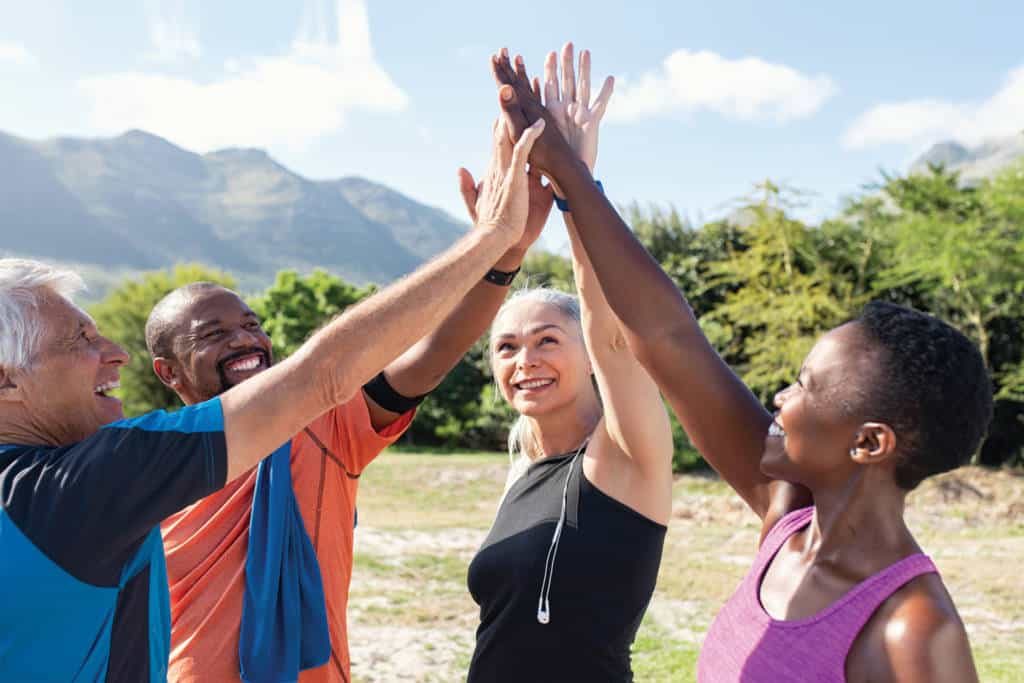Those interested in sports will absolutely want to watch her presentation; the insight into how these major athletes train was incredible, including the fact that part of Meeks’ job may well be teaching athletes skills up to and including how to go grocery shopping, depending on the athlete’s life experience. That said, her presentation is a must-see for any brand looking to thrive in this space: Meeks covered what she looks for in a supplement, and what she rejects.
Top of the list: third-party certifications. A brand trying to get onto her list of products she recommends (when necessary) to her players has to be third-party certified by Informed Sport or NSF Certified for Sport. She tells her players to download the NSF Certified for Sport app and the Informed Sport app, to check any products they want to buy. “Because supplements aren’t checked by the FDA, it’s always possible that there are ingredients in there that aren’t listed on the label,” she said. “Third-party certifications tell me that someone’s checked, someone has confirmed that what’s in the bottle is on the label, and that it’s safe for athletes.” She also pointed to a few brands that she recommends to athletes.
Register atwww.NaturallyInformed.netto view Meeks’ presentation—and all the other presentations—on-demand.
Related: The Active Nutrition Opportunity NBA Basketball Players Found to Have Low O3I Levels Introducing a Fitness Club for the Natural Products Industry
Neil E. Levin, CCN, DANLA, Senior Nutrition Education Manager at NOW, also talked third party certification. NOW Sports products are tested through the Informed Sport certification program, allowing athletes to look at the test results for NOW's products down to the lot number. Levin specified that this is vital, and not just to weed out mislabeled products: "It's possible to misunderstand ingredients, and there are many names for the same substance, and that can cause confusion about whether or not a product is athlete-friendly," he noted. And, like Meeks, he pointed out that while supplements are regulated by the FDA, they aren't tested or pre-approved, so adulterated or contaminated products can make it to market.Levin went into detail about the sports nutrition market, as well, noting, for instance, that protein demand is anticipated to exceed what meat and dairy sources can provide worldwide, indicating that reliance on plant-based will only grow. He shared market research, more information on Informed Sport, and noted that just because a lab is ISO certified doesn't mean they can do everything. Details can be found in his full presentation.
Third-party certification is just the tip of the iceberg, though. Also discussed Day One: Nutrigenomics, specifically, sport nutrigenomics. “Diet and genetics are two sides of the same coin,” explained Ahmed El-Sohemy, Department of Nutritional Sciences, Faculty of Medicine, University of Toronto, and Chief Science Officer at Nutrigenomix. “And one size does not fit all.” Genes appear in different genotypes, El-Sohemy explained, and those genotypes affect how a person responds to a given nutrient. For example, he pointed to caffeine. A person’s CYP1A2 genotype changes how they respond to caffeine—whether they metabolize it quickly or slowly—and that time-to-metabolize makes a difference in how an individual performs. This holds for weight loss, too. Going on a high protein diet? Consider getting a genetic test—high protein diets only help people with an AA genotype. El-Sohemy’s takeaway: “It’s time to stop theorizing that genes have an impact on nutrition, and start proving it.”
Nor is that all. Also discussed: skincare, gut care, the power of gratitude, how to get a better market price for your product, cholesterol (and why it doesn’t matter), a market overview, social media, and unmet needs that can provide opportunities. Keep an eye out for more coverage, or skip the wait and check out the sessions that interest you by registering atwww.NaturallyInformed.netto watch them all on-demand for free.










